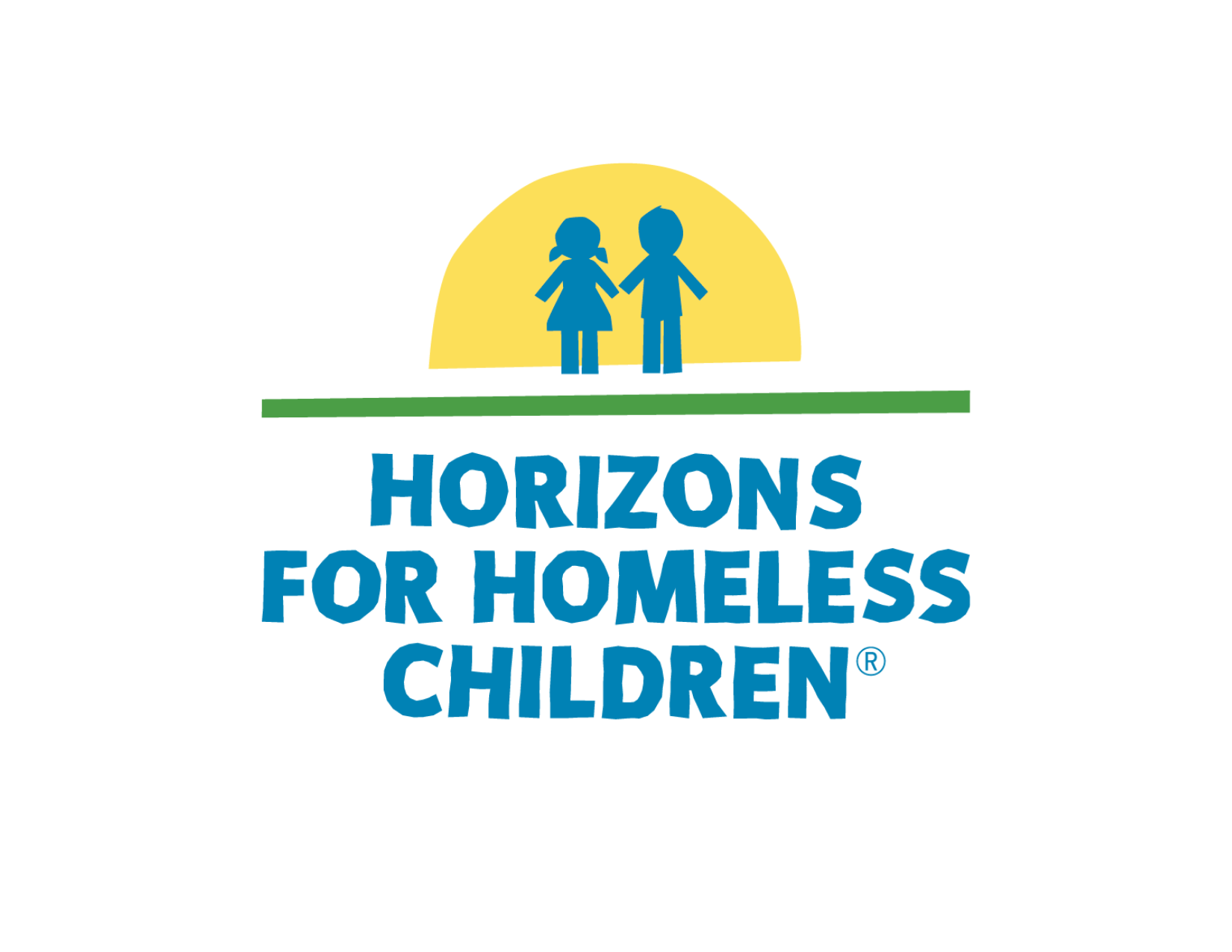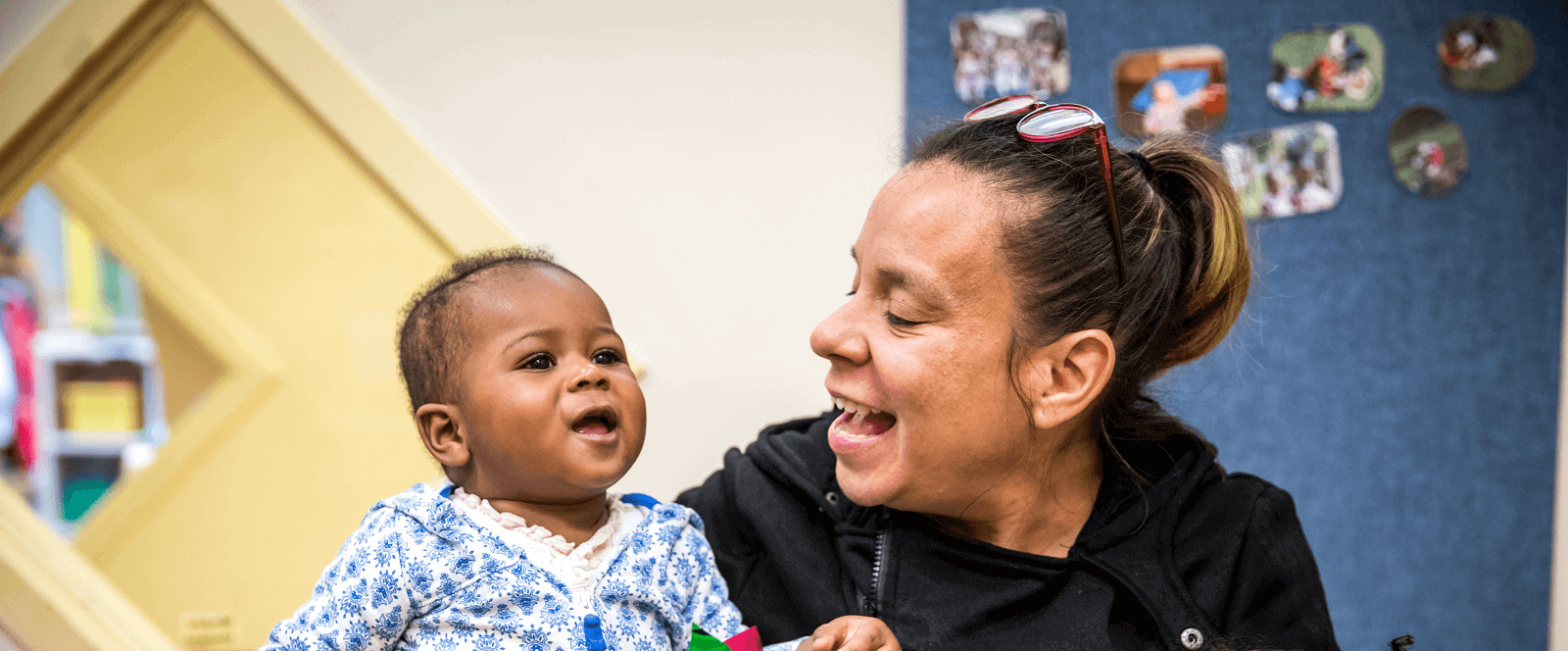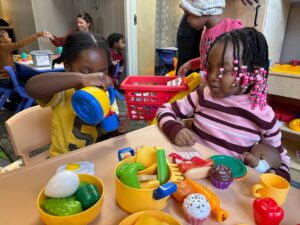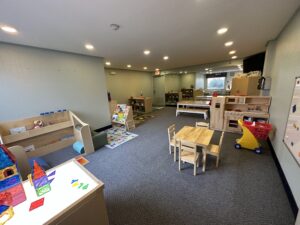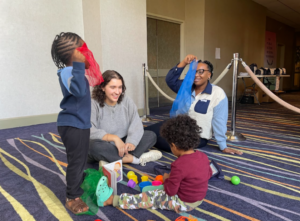Horizons’ Infant Classrooms
- by ddwyer
A child’s early experiences are critical to their lifelong success both socially and academically. According to the American Public Health Association, toxic stress caused by the experience of homelessness triggers a range of harmful biochemical impacts on the young developing child, including abnormal brain development. Studies also suggest that homeless children experience more developmental delays, emotional problems and behavioral issues than their housed peers. At Horizons, our Infant Classrooms work to mitigate the negative effects of homelessness by utilizing trauma informed best practices, with an emphasis on consistent and nurturing schedules proven to counteract the impact of homelessness.
Infants can attend Horizons as early as 2 months old starting a curriculum centered on emotional and social development. Meital Sandbank, a Lead Infant Teacher in Horizons’ Dorchester Early Education Center, explained the ways Horizons tailors its curriculum to help infants overcome the challenges of homelessness.
“With children this young, curriculum and teaching methods are based on building relationships,” said Meital. “At Horizons we provide a safe, loving and nurturing environment, centered on themes of routine and consistency.”
Meital added that Horizons’ infant classrooms focus closely on the individual child’s needs. If a child is beginning to crawl, their classroom activity might incorporate a crawling exercise. If the stress of what they’re experiencing outside of school makes it difficult for a child to regulate their emotions, that child may be held longer or more frequently than others.
A consistent classroom routine is also extremely important to establish normalcy for children experiencing homelessness. During the day the infants are taken on walks, read aloud to, and fed a nutritious breakfast, lunch and snack – with ample nap time in between. Activities may be playing in a sensory table or listening to different types of music.
What does Horizons do to mitigate those effects?
Meital suggests the answer in alleviating the stress on homeless children is individualized care.
“At Horizons we try to mitigate that trauma of homelessness by focusing on each child’s individual needs. As teachers, we try to find what helps each child de-stress and then incorporate that coping mechanism into their day to day routine.”
Mental health counseling is also an important aspect of reducing the negative effects of homelessness in children. At Horizons, teachers focus heavily on social and emotional development and mental health. To help develop individualized plans, Horizons has a Social and Emotional Mental Health Consultant visit weekly to observe the classroom and work with teachers to come up with plans to support individual children.
All Horizons teachers are trained in trauma and stressed informed care, with an additional group of teachers – one representative from each age group – receiving training in the Pyramid Model developed by the Center on the Social and Emotional Foundations for Early Learning (CSEFEL) at Vanderbilt University. The pyramid model is an approach to social and emotional development through positive behavioral intervention and evidence-based practices. The pyramid model supports social and emotional development in infants and young children by empowering educators to employ responsive caregiving in nurturing and safe learning environments.
Meital recalled one of the more rewarding memories of her work. A little boy, only 5 months old, started at Horizons and cried all day long, every day. He was inconsolable.
“You could just see the stress and tension he was carrying around,” added Meital.
“However after coming to Horizons for a few months we saw how the consistency of our routine and stress free environment started to pay off. He not only stopped crying but actually started to dance when he entered the classroom.”
“For children, learning comes through play and interactions – it is how they learn the fundamentals of social and emotional, physical, cognitive and language skills,” said Meital.
Metial went on to explain that teaching young children looks a little different than a typical classroom with older children because it is developmentally based.
“During the first year of life, children’s brains are developing at the most rapid rate in human life – they are learning about the world through their experiences – essentially what their families and teachers show them,” said Meital.
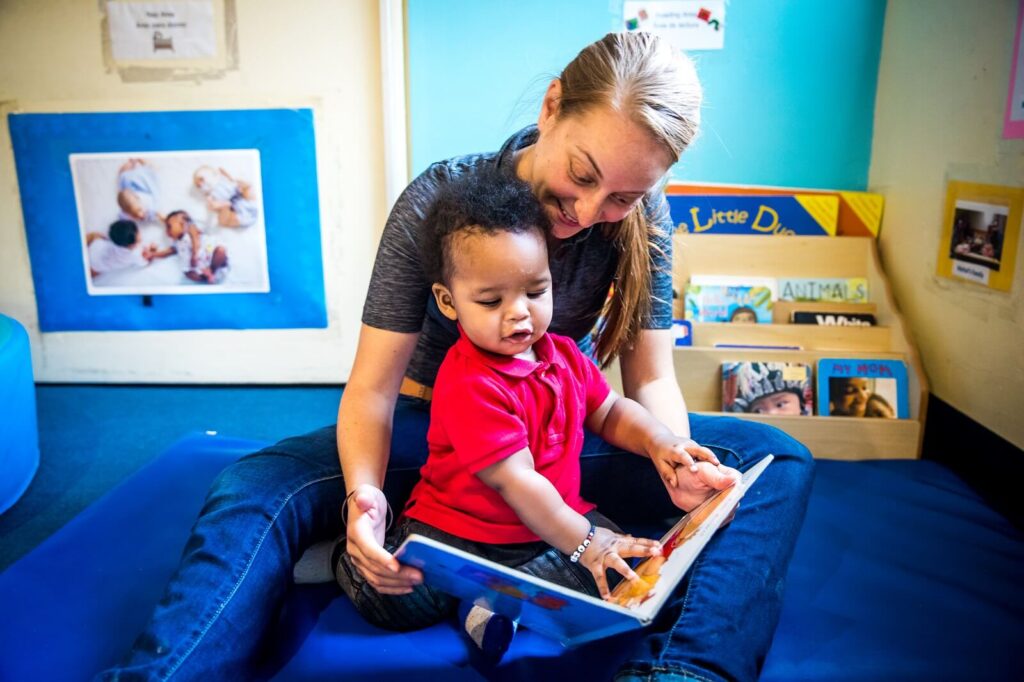
Meital Sandbank reading to one of her students.
How are infants affected by homelessness?
Physically, homelessness can act as a deterrent to an infant’s healthy development.
“Shelter rooms are roughly the size of a dorm room. That doesn’t leave much room for babies to practice crawling or rolling over,” said Meital. “And even if there is the space, shelters aren’t always clean enough, either in reality or based on the parent’s perceptions. This inhibits parents from allowing children the valuable floor time that babies need to develop those skills.”
Emotionally, infants are not immune to the stressors of homelessness. Infants can feel the stress of their parent, naturally being affected by those tense feelings. If a child has difficulty regulating their emotions, or self-soothing, this could be a sign they are affected by stress. These effects can be detrimental to cognitive development and can lead to learning and emotional delays later in life.
“Think of the negative effects stress has on adults, now picture that stress on a developing brain.”
Infancy is a time of rapid growth and development. A time that relies heavily on the relationships and experiences to which an infant is exposed.
“Infants need to feel a sense of trust to be able to explore and learn about their surroundings. Teaching infants means giving them love and security, while showing them new experiences – it is understanding child development and knowing how and when to engage each child,” said Meital.
“When we provide quality early education, we set children up for success in both their personal as well as their academic lives!”
This piece was written by Rachel San Giacomo, a regular contributor to Horizons’ blog.
